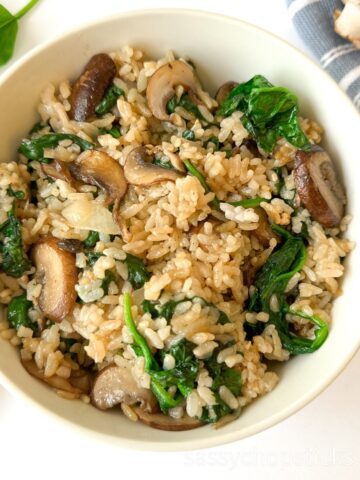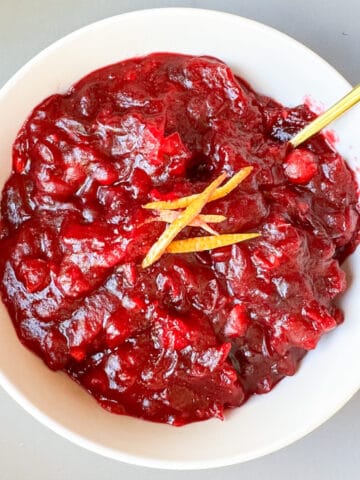With its mild flavor, crisp texture, and versatility, daikon radish has gained popularity in the culinary world. This long white root vegetable is widely used as a main ingredient in many savory dishes, especially in Asian cuisine. Unfortunately, it is not readily available in certain regions. Because of this, it is important to explore some daikon radish substitutes that can replicate its unique flavor and other characteristics. This article explores the best substitutes and how to choose the right one depending on certain key factors.

Jump To
The best substitutes for daikon radish
There are many substitutes available for daikon radish. These alternatives offer comparable qualities while bringing their distinct flavor and texture. The best daikon radish substitutes include the following:
Red Radishes
Red radishes are a great alternative to daikon radishes. While they lack the shape and size of a daikon, they offer a hint of spiciness and a similar texture. They work well in slaws, salads, and pickling recipes, where daikon radish usually is used for its mild flavor and crispness.
Horseradish Root
If you are looking for a daikon radish alternative with a hint of heat and a strong flavor, horseradish root is a good choice. It can add a zesty kick to recipes with its distinct aroma and pungent taste. Mince or grate the horseradish root and use it sparingly in spreads, dips, and sauces.
White Turnips
White turnips have a similar appearance to daikon radishes, making them a great visual alternative. They feature a slightly sweet and peppery flavor, which can complement a wide variety of Asian dishes. You can use white turnips in stews, soups, and stir-fries as an excellent substitute for daikon radish, offering a similar flavor and texture profile.
Beetroot
Beetroot can be a good daikon radish alternative for vibrant color and a hint of natural sweetness. It is different in terms of texture and also offers a slightly earthy flavor and a pleasant crunch. You can use thinly sliced or grated beetroot in slaws, salads, or even garnish to bring mild sweetness and a pop of color to your dishes.
Cabbage Hearts
Cabbage hearts don’t have the same flavor and texture as daikon radish, but they can be used as a suitable substitute in specific applications. Thinly sliced, small cabbage hearts offer a refreshing and crisp component to slaws and salads. While easily available in Asian markets, it’s important to note that the taste of cabbage hearts is distinctly different from daikon radish, which means the substitution will likely change the dish's overall flavor.
Jicama
This Mexican turnip offers a slightly sweet flavor and a crunchy texture, making it a good daikon substitute in certain dishes. You can use it in stir-fries, salsas, and salads to add a crisp and refreshing element. But remember that jicama has a milder taste than regular radish so seasoning adjustments may be required.
Parsnip
With its sweet and nutty flavor, parsnip can serve as a good alternative for daikon radish in certain dishes. While it doesn’t have the same crispiness as daikon, it adds a subtle sweetness to recipes. Steam or roast parsnips in soup recipes, purees, and stews to lend an earthy and comforting flavor.
Carrots
Carrots are a versatile vegetable and an excellent daikon radish substitute. Readily available in grocery stores, they offer a slightly sweet taste and a similar crunchy texture. You can use carrots in salads, stir-fries, and pickling recipes as a good daikon radish substitute, adding vibrant color and refreshing your dishes.
How to choose a daikon radish substitute
Choosing the most suitable daikon radish substitute primarily depends on several factors. Consider the desired appearance, flavor, and texture when making your choice. White turnips and red radishes are great for maintaining a crispy texture and mild flavor, while horseradish sauce or root adds a spicy flavor. Jicama and cabbage hearts can offer visual similarity, although with different flavors. Carrots, beetroot, and parsnip offer unique qualities, bringing crunch, earthiness, and sweetness to your recipes. Ultimately, your taste preferences and the specific characteristics you are looking for in a daikon radish substitute will guide your decision.
Conclusion
When daikon radish is not readily available, it is essential to have a range of alternatives on hand to ensure your dishes maintain the intended texture and flavor. You can explore the above-listed best options and let their unique characteristics enhance your culinary creations. Creativity and adaptability in the kitchen will allow you to overcome the unavailability of this popular ingredient so you can continue to enjoy satisfying and delicious meals.





Leave a Reply